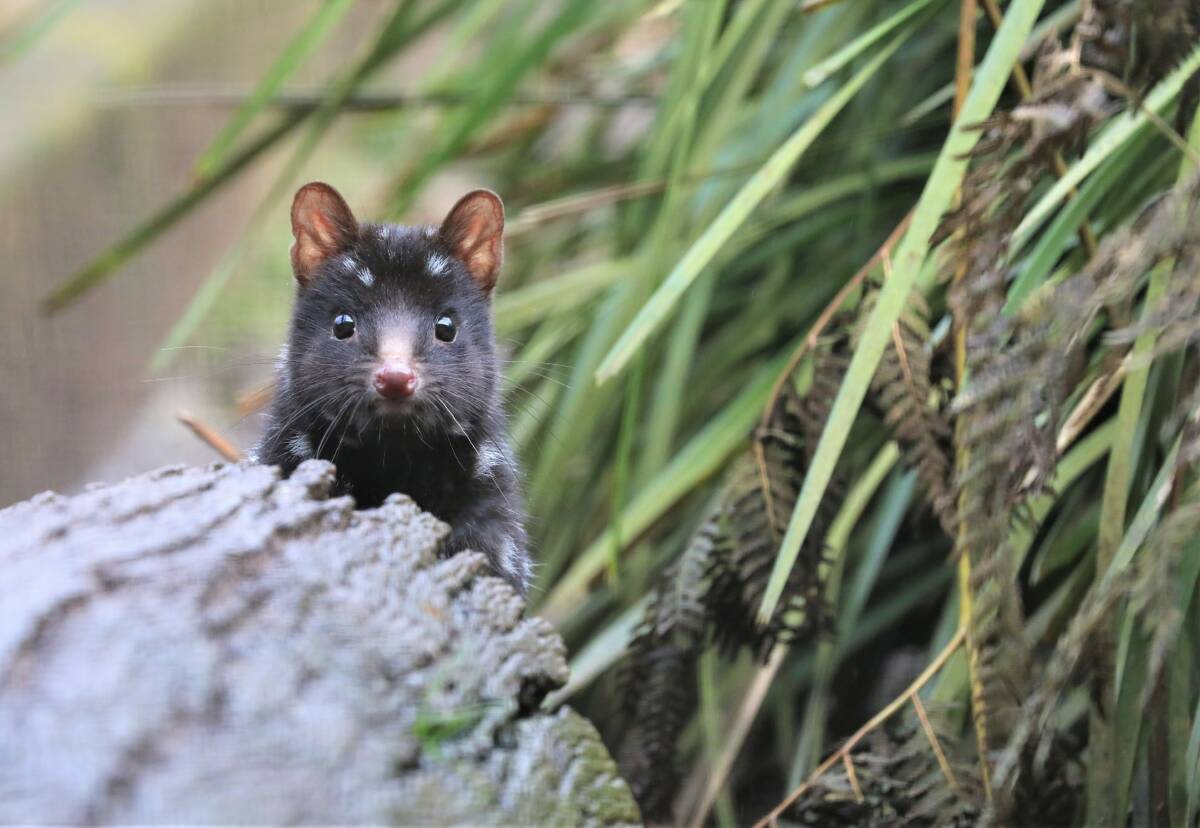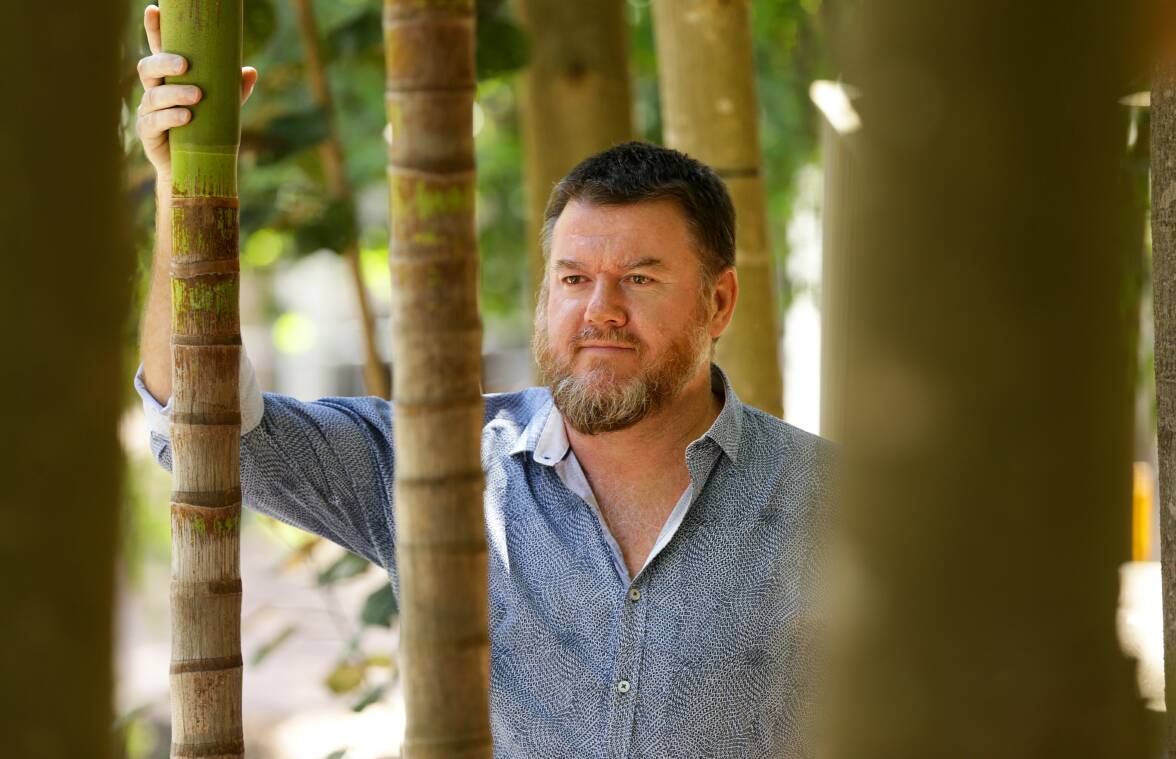
The Hunter's biodiversity has done relatively well in the past, but its fauna "may be in the next wave of declines", University of Newcastle Professor Matthew Hayward says.
"We have an amazingly rich biodiversity here, with hotspots for frogs, birds and mammals," he said.
"The valley is quite unique from a biogeographic perspective in that it splits the Great Dividing Range to an extent."
It was once well vegetated and wildlife could easily cross the valley.
But now it has largely been cleared, creating "a biological barrier, as well as a physical/topographical barrier".
It was fauna in Australia's arid zone that had suffered most since European colonisation. Nonetheless, the Greater Hunter Region [Taree to the Central Coast] has more than 200 threatened flora and fauna species.
"There is an argument that the more wetter, ecologically resource-rich coastal areas like the Hunter have been buffered from the impacts of introduced predators," Professor Hayward said.
"So we may have done alright in the past, but the biodiversity that does persist in the Hunter may be in the next wave of the declines.
"We're seeing that with threatened species like squirrel gliders and parma wallabies struggling to hang on down here."
Professor Hayward, a conservation scientist, fears children today - including his own - won't have the chance to see some aspects of nature in future.
He gave local examples of "the honeyeater migration across the valley, choruses of Littlejohn's tree frog and green-and-golden bell frogs, and squirrel gliders and parma wallabies in the wild".
"It's one of those aspects of intergenerational equity that is routinely ignored - the loss of experiences of nature."
He said the Dasgupta Review in the UK "highlights all the innumerable services biodiversity provides us".
This includes medicines, clear air, water, pollination and pest control.
"These are only the ones scientists have documented," Professor Hayward said.
"We know so little about our biodiversity that there are undoubtedly millions more critical relationships that we don't know of.
"I see biodiversity as a game of Jenga - you can take some species out and the ecosystem (Jenga block) survives, but once you pull the wrong species out of the system, the whole thing will collapse."

The Senate is due to release its final report this month into Australia's "fauna extinction crisis".
The inquiry's interim report said Australia had "one of the world's worst records for extinction and lack of protection for threatened fauna".
Australia's state of the environment report, released last month, said the number of species on the federal government's threatened list had increased by 20 per cent since the year 2000.
Habitat destruction and climate change are the major drivers of this trend.
Australia has acknowledged the extinction of 104 native species since European colonisation, but the real number is thought to be higher.
The Dasgupta Review was commissioned by the UK Treasury in 2019. It was published ahead of the Convention on Biological Diversity. But the convention, now due to be held in December, was delayed due to the pandemic.
This had slowed progress and inhibited "recognition of the importance of biodiversity to our welfare".
The review describes nature as "our most precious asset" and finds that humanity has collectively mismanaged its "global portfolio".
Professor Hayward said "climate change gets all the media, but the biodiversity crisis is likely to lead to the demise of our species sooner if all goes pear-shaped".
The challenge for biodiversity is getting it "incorporated into our economic system". He gave the comparison of "economic opportunities offered by climate transitions".
Biodiversity was currently seen as "an externality that is not costed into things".
He said the world economic system may need to "move away from GDP [gross domestic product]".
Professor Hayward said "we need to start thinking outside the box".
"We're stuck in this paradigm of government-created protected areas to look after our wildlife. These protected areas are placed in areas humans don't want. Not, for example, on the good soils of the Hunter Valley floor.
"They are assumed to solve all conservation problems. But in reality, protected areas only protect against habitat loss threats, which is the key threat around the world outside of Australia.
"Here, introduced species are the key threat and lines on maps don't address this problem."
More investment is needed to make protected areas work, and the private sector should be "engaged in conservation work more broadly".
"Currently there are major ownership issues for biodiversity. There is no value in having biodiversity on your property, as it is owned by the government," he said.
"Whereas elsewhere, the property owner owns the biodiversity on their property so can use this to make money."
He said "safe havens" are another important requirement for terrestrial species. That is, fenced areas where introduced species are completely removed. Aussie Ark in the Barrington Tops is one example of this.
Last week, Aussie Ark revealed the birth of 23 eastern quoll joeys. Aussie Ark first brought quolls to its Barrington site in 2017. It was the first time they had been on mainland Australia for more than 60 years. Eastern quolls were once common throughout Australia.







